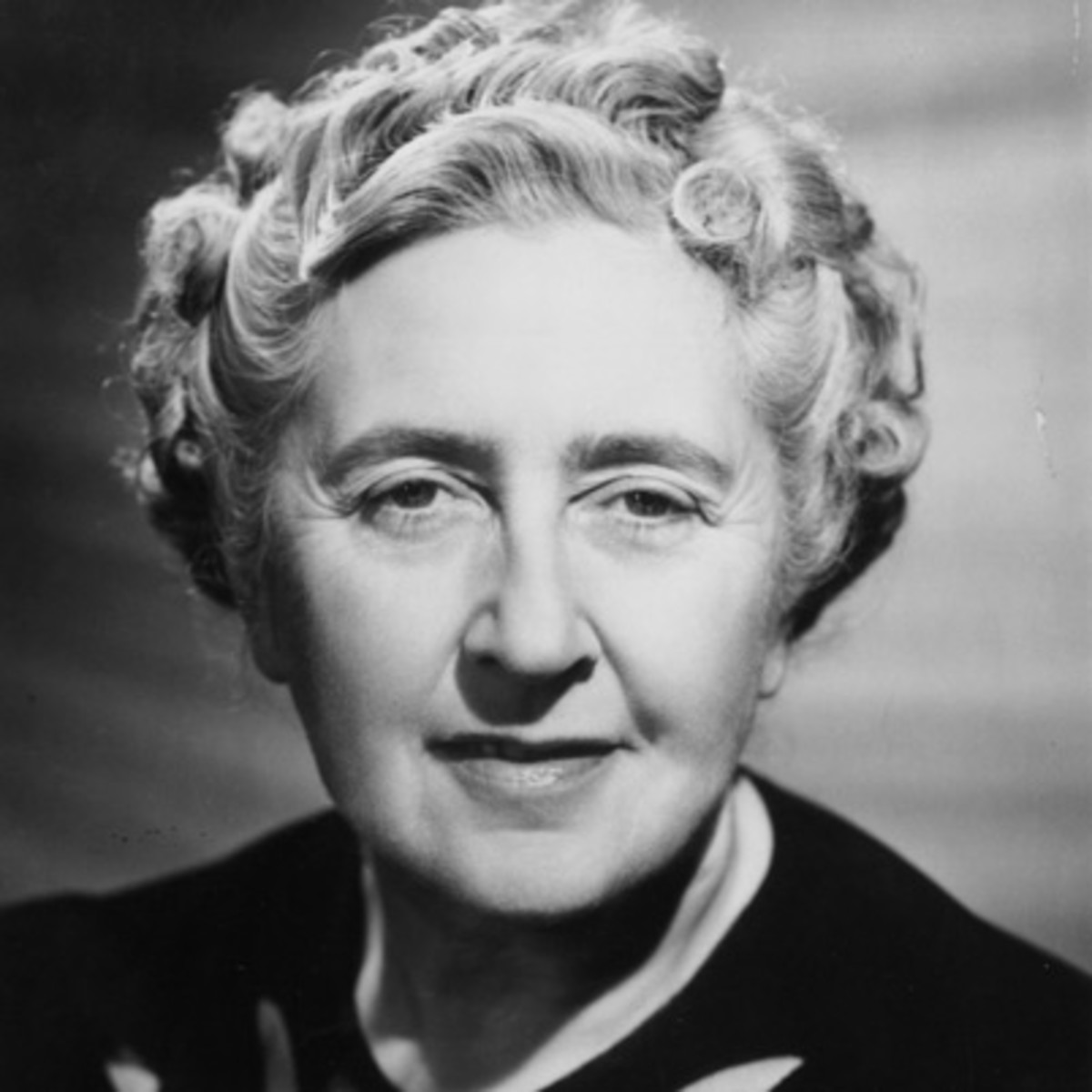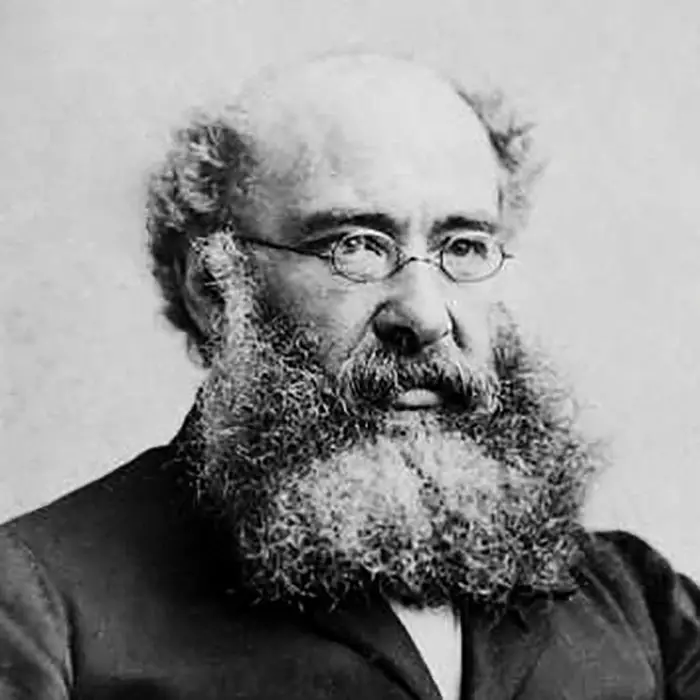Agatha Christie. Stephen King. Ray Bradbury.
How in the world do they do it?
You can barely finish one novel, and all these authors have books flying out of their fingers like magic!
Again, how do they do it!?
What does their daily routine look like?
Do they have any advice on becoming a prolific writer?
What is their perspective on writing, and how did they manage to keep it up over so many years? ?
The answers to all these questions are destined to be gold.
To find the golden answers I gathered all the information I could get on 7 of the world’s most prolific authors.
Here are the elements I will be breaking down below:
- Daily Routine
- Their tips to becoming a productive writer
- Quotes for aspiring writers
Each of the authors had their little secret that helped them write well, consistently, and continue to write books after books.
Whether you write poetry, short stories, or novels, each author has at least one piece of advice that you can use. Ready to raise your writing productivity to new heights and become a prolific author? Then let's get started!
Charles Dickens
It’s hard to find a book by Dickens that hasn’t rightfully earned the title of a “classic”, as his words have swept the world with his many stories.
Dickens has written around 15 novels along with many novellas, short stories, and several non-fiction works. His best-selling work, A Tale of Two Cities has sold over 200 million copies.
But what did he do every day to achieve such feats?
Charles Dickens' Writing Routine
Everyday, Dickens would wake up at 7:00, eat breakfast at 8:00, and was set and ready at 9:00 to write.
Dickens would write for 4-5 hours until 2:00 P.M. Without exception, he would block off his morning to solely story crafting. After a quick lunch, he would go on a long walk around London and brood over the story he was currently working on.
After his walk and thinking session, he would get back home, wash up, have dinner, and spend the rest of his evening with his family.
I’m not sure about you, but this sounds like a perfect day for me.
Every day he would write, muse on his stories, and rest with his family.
Repeating this daily routine over and over was what made Charles Dickens the legendary author
Charles Dickens' Tips For Being a Prolific Writer
1. Have a Daily Writing Battle Plan
Dickens made a daily routine that he knew if he followed, his craft would improve.
He also kept it simple so that he could stick with it. He wrote at the same time, the same place, and the same amount of time each day.
How do you schedule your writing in your daily routine?
What time every day do you write?
Where do you write?
How long is your block of writing time?
2. Brace Yourself For The Trials Ahead
To be a prolific writer like Charles Dickens, you must be committed to your writing and committed to doing the hard work.
In a letter that Charles Dickens sent to the father of a 19-year-old novelist Dickens wrote,
“Guard her against supposing that successful Fiction is to be written easily. Patience, attention, seclusion, consideration, courage to reject what comes uppermost, and to try for something better below it.”
In another letter, he wrote to the author Wilkie Collins he wrote,
“[Only jolter-headed], conceited idiots … suppose that volumes are to be tossed off like pancakes and that any writing can be done without the utmost application, the greatest patience, and the steadiest energy of which the writer is capable.”
Writing a lot consistently is not easy.
Are you committed to putting in the time and the hard work?
To be a prolific author, you must work on making your answer yes.
3. Get a Creative Writing Hobby
This may seem unrelated, and unimportant, but to work your best you must be fully physically and mentally restored.
Dickens knew this well and urged the German novelist Sophie Verena to pick up a hobby to improve her writing.
“You must remember that in all your literary aspiration, and whether thinking or writing, it is indispensably necessary to relieve that wear and tear of the mind by some other exertion that may be wholesomely set against it. Habitually, I have always had, besides great bodily exercise, some mental pursuit of a light kind with which to vary my labors as an author. And I have found the result so salutary, that I strongly commend it to the fair friend in whom I am deeply interested.”
To apply Charles Dickens advice to your own life, here are the three things you should do:
Jerry Jenkins
Best known for his popular Left Behind series, Jenkins is a 21-time New York Times Best-selling author. He has written nearly 200 hundred books and sold more than 71 million copies.
What is his secret? What does the life of an author of over 200 books look like?
Jerry Jenkins' Writing Routine
In Jenkins’s Youtube video he takes us through his usual day in the life as a best-selling author.
Each day he gets an early start and wakes up between 5:30 and 6:00. To have a clear head before he starts writing, he first takes care of all the tasks that might distract him while writing. Things such as email and the news.
Once he gets those things are out of the way and has a quick breakfast, it’s time to start writing. Jenkins retreats to his office which he calls his writing cave and starts writing.
To keep himself on track and focused, Jenkins set himself the goal of 2,500 words before noon. When the clock hits twelve, he finishes his writing for the day and continues with his normal life.
Jenkins doesn’t break his routine. Day in and day out, he writes 2,500 words before noon. Each day he hones his craft, intending to make each novel better than the last.
Jerry Jenkins' Writing Tips
1. Construct Merciless Deadlines
To keep himself on track, Jenkens sets deadlines and makes them sacred.
“One in a hundred writers make their deadlines, so I determine if I just do that, I’m setting myself apart from 99 other writers out of a hundred. So I make sure my deadlines are sacred”
~ Jerry Jenkins
Setting sacred deadlines for yourself will ensure that writing is a priority in your life. When writing is a priority you will not push it off to the side whenever life gets busy.
2. Write Like Your Life Depends On It
“Treat your writing schedule like it’s your job”
~ Jerry Jenkins
“Dreamers talk about writing. Writers write.”
~ Jerry Jenkins
How much time can you commit to writing each day?
Do you take writing seriously? Or is it just a thing you do off-and-on?
Set yourself a daily word goal, make a monthly word deadline to work towards. Multiply your daily word goal by the days in the month and make that your deadline you must achieve at the end of the month.
So if it’s your goal to write 500 words a day, your deadline by the end of the month will be to write 15,000 words.
To be a more prolific writer according to Jerry Jenkins, here’s what you need to do.
Agatha Christie
The queen of mystery novels earned her crown with writing over 82 mystery novels, dozens of short stories, and selling over 4 billion books.
And no that is not a typo. 4 billion with a B.
Agatha Christie’s Writing Routine
Most of Christie's ideas for her stories came from the inspiration of the world around her.
Throughout the day, Christie would be on the lookout for story ideas. While shopping, cleaning, cooking, etc. she would notice any little detail that had the potential of being in her novel. From people's behavior, looks, events, or an interesting piece of dialogue she overheard someone say.
Like a true detective herself, as soon as she discover an idea, she would capture her findings in one of her hundreds of notebooks. Eventually, each of the hundreds of notebooks of Christie’s was filled to the brim with intriguing discoveries.
Because of her notebooks, she never ran out of resources for story creation.
When she wanted to organize all the ideas into a cohesive novel, she would secretly hideaway in a locked room by herself. There, in the peace and quiet, she would piece together her novel. With an exquisite combination of what was in her notebooks and her imagination, her novels were created.
After outlining, she would let herself get lost in the story, and go full steam ahead with writing. Not letting anybody interrupt her.
Agatha Christie's Writing Tips
1. Have a Notebook For Capturing Story Ideas
We pass hundreds of amazing story ideas everyday. Don’t waste them and start capturing them in a notebook. If you keep up with it, you will soon have dozens of notebooks full of great story ideas. Once you start doing this, you will never have to worry about running dry of ideas.
"Plots come to me at such odd moments, when I am walking along the street, or examining a hat shop...suddenly a splendid idea comes into my head."
~ Agatha Christie
2. Don't Let Anything Interrupt You
(Not Even an Alien Invasion)
When Christie sat down to write, she WROTE. She didn’t let anybody or anything interrupt her. She put her head down and with all her focus she wrote. Sometimes you don’t need more time to write, but to get more out of the time you do have to write.
"The best time for planning a book is while you're doing the dishes. ”
~ Agatha Christie
Chris Fox
While many writers aim to write a couple of thousand words a day, Fox prides himself on being able to write 5,000 words in an hour. In less than six years he has published over 20 books.
He is no doubt one very prolific writer.
Chris Fox’s Writing Routine
Before sitting down to write, Fox first makes sure that he is full of energy and is ready to focus on writing. So when he wakes, he goes to the gym, has breakfast, and takes a moment to notice all the things he’s grateful for.
After all that, he is full of energy and ready to write.
Fox’s method to make the most of his writing time and write as many words as possible, is to write in sprints.
What is a writing sprint you ask?
“A writing sprint is, quite simply, a predefined length of time where you will do nothing but write. It has a clearly defined start and end time, and while you are writing, you will do absolutely nothing else. ….Once a sprint begins your fingers fly across the keyboard until you are finished. You do not stop. You do not go back and edit. You keep writing until the buzzer goes off ”
Excerpt From: Chris Fox. “5,000 Words Per Hour.”
So he sets a timer for a set amount of time, (say 25 minutes), and writes as much as he can in that time. When the timer is up, he tracks how many words he’s written, then takes a few minutes to rest and think about what he’s going to write in your next sprint.
He continues this cycle - over and over until it has been an hour or two.
This intense focus is his secret to writing the mind-blowing number of 5,000 words an hour.
Chris Fox’s Writing Tips
1. Prepare Before You Write
Take a quick 5 minutes before you write to make sure you have the energy to write well and with focus. That could be doing 10 burpees, grabbing a cup of coffee or tea, taking a 15-minute power nap, or all three. Whatever creates energy for you, and gets you ready to write, make that your daily ritual before you write.
2. Sprint! Don't Jog
Writing sprints is a great way to help even the most distracted people focus, write a lot, and write a lot well. Start with 5-minute sprints. Where for 5 straight minutes, all you do write. No thinking, checking social media, researching, texting, or even taking a sip of water. write.
Chris Fox’s Quotes for Writers
“If on the other hand, you decide you're a best-selling author, then your mind will subtly reinforce that. It will begin noticing the things that will help you achieve that goal and will keep doing so until your goal is a reality”
~Chris Fox
“Planning is your best friend if productivity is your goal”
~Chris Fox
Ray Bradbury
Best known as the author of Fahrenheit 451, Ray Bradbury did not miss a single day of writing for over seventy years. (Talk about being consistent). He has written over 30 novels, 600 short stories, numerous poems, essays, screenplays and plays, and has sold over 8 million copies of his works.
Ray Bradbury’s Writing Routine
Bradbury did two simple things every day to improve his writing. Every night he would read a short story before going to bed, and every week he would write a short story. By the end of a year, he had read 365 short stories and written 52 short stories.
These two simple daily and weekly goals he set himself are what made him into a great author.
Ray Bradbury’s Writing Tips
1. Drown Yourself in Books
Reading a lot is as necessary to be a great author, as writing is. The more you read, the better your story-crafting skills get.
“Just write every day of your life. Read intensely, then see what happens. Most of my friends who are put on that diet have very pleasant careers.”
~ Ray Bradbury
“In your reading, find books to improve your color sense, your sense of shape and size in the world.”
~ Ray Bradbury
2. Write. (Even When It Deserves to be
Thrown in the Trash)
“You only fail if you stop writing”
~ Ray Bradbury
“Write a short story every week. It’s not possible to write 52 bad short stories in a row”
~ Ray Bradbury
Anthony Trollope
Victorian-era English novelist Anthony Trollope wrote over 47 novels, 18 works of nonfiction, 12 short stories, 2 plays, and an assortment of articles and letters. He did all this while still maintaining a full-time civil service job in the general post office.
Productivity could have been his middle name.
Anthony Trollope's Writing Routine
Trollope’s secret to writing was to wake up early every day before work and write with no deviance.
“It was my practice to be to my table every morning at 5:30 A.M., and it was also my practice to allow myself no mercy”
~ Anthony Trollope
To wake himself before dawn, he asked his maid to wake him up with coffee in the morning every day and make sure he didn't miss his writing time.
Coffee in hand, he would go straight from his bed to his desk to write.
Trollope had a unique way of keeping himself on track with his writing. He would set himself the goal to write 250 words every quarter-hour. This goal of 250 per quarter-hour, meant 1,000 words an every hour. What would it look like if you could write 1,000+ every single day? It would pay off greatly.
And for Anthony Trollope, it did.
Anthony Trollope's Writing Tips
1. Have a Maid (or Friend) to Keep You Accountable
You may not have a maid like Trollope did to wake you each morning with a hot cup of coffee, (which is truly unfortunate if that’s the case), but you can still have someone to keep yourself accountable.
Tell someone about your writing dreams, goals, aspirations. Then you could ask them to call you at a specific time each day to remind you to write.
Imagine getting a call from a friend saying, “Hey! What are you doing? It better be- wait, are you eating a sandwich!? Go write right now!”
I’m not sure about you, but I’d drop that PB&J immediately and get started with my writing.
2. Set Laughably Tiny Goals
The mini goal of 250 words every quarter-hour is a brilliant way to keep yourself on track. That little goal will give you the drive to keep writing to achieve it. Then when you do achieve it, it will then give you the momentum to keep going.
Ambition + Momentum = Progress
What mini-goals can you set daily or hourly to keep yourself accountable?
Anthony Trollope's Quotes for Writers
“This habit of reading, I make bold to tell you, is your pass to the greatest, the purest, and the most perfect pleasure that God has prepared for His creatures. It lasts when all other pleasures fade. It will support you when all other recreations are gone. It will last until your death. It will make your hours pleasant to you as long as you live.”
~ Anthony Trollope
“What on earth could be more luxurious than a sofa, a book, and a cup of coffee?...Was never anything so civil?”
~ Anthony Trollope
Stephen King
Last, but not least, is one of the most prolific and prominent authors of the 21st century. Having written over 61 novels, over 200 short stories, and sold over 350 million copies. King is among the world’s highest-paid authors.
Stephen King's Writing Routine
King sit down to write at 8:00 or 8:30 a.m every day with a cup of tea and some music. His daily goal is to write 6 pages (roughly 2,000 words) of his current novel.
"I wake up. I eat breakfast. I walk about three and a half miles. I come back, I go out to my little office, where I've got a manuscript, and the last page that I was happy with is on top. I read that, and it's like getting on a taxiway. I'm able to go through and revise it and put myself – click – back into that world, whatever it is. I don't spend the day writing. I'll write fresh copy for two hours, and then I'll go back and revise some of it and print what I like and then turn it off."
~ Stephen King
Stephen King's Writing Tips
1. KO Distractions
Distraction is one of the most common killers of your idea of a story becoming a novel.
Eliminating as many distractions in your life can be one of the best things you can do if you want to be a prolific writer.
"It's pure habit. I write from probably 7:30 till noon most days. I kind of fall into a trance. It's important to remember that it isn't the big thing in life. The big thing in life is being there if you're needed for family or if there's an emergency or something. But you have to cut out the unimportant background chatter. That means no Twitter. That means not going to Huffington Post to see what Kim Kardashian is up to. There's a time for that – for me, it's usually before I go to bed. I find myself sitting hypnotized and looking at videos of funny dogs, that kind of thing."
~ Stephen King
2. Wear Rose-Colored Glasses and
Drink Half-Full Cups of Water
To persevere day in and day out with your writing, you must stay optimistic. Writing can sometimes be a struggle, so keeping a positive outlook on your writing can be the deciding factor of whether or not you finish the book.
“Stopping a piece of work just because it's hard, either emotionally or imaginatively, is a bad idea. Optimism is a perfectly legitimate response to failure. ”
- Stephen King
3. What are You Waiting For? START!
Take the leap, and write the first chapter. The best time to become a writer is now.
"The scariest moment is always just before you start. After that, things can only get better."
- Stephen King
So to summarize, here are the 16 tips of 7 of the most prolific authors in the world on how they are so productive.
Phew! That's a lot! Where to start? Choose one tip from this list and implement it today. So let me know in the comments:
What is the first tip from this list that you
are going to try?
As for me, I am going to go see about getting a friend to make me coffee in the morning.
Kathleen Ramm
Kathleen Ramm’s first writing project was a rip-off of the tortoise and the hare. She continues to write because when she was little she tried to enter Narnia multiple times, but they never let her in. Her only other alternative was to create worlds and characters of her own.
Kathleen joined Kingdompen because she was inspired to help writers at any level to write badly so that they can write goodly.
She enjoys writing with her siblings, doing Taekwondo, and sketching. Her greatest accomplishment is getting first place in a Taekwondo tournament (and there was only one other contestant).










I really enjoyed this article. Super interesting and helpful.
Thank you! So glad you found it helpful and enjoyable. 😀
Thank you. Just what I needed. I will try Dicken’s routine. It’s the closest to my own right now. Then I’ll throw in a bit of Fox’s, a dash of Trollope’s, and work towards King’s and Christie’s.